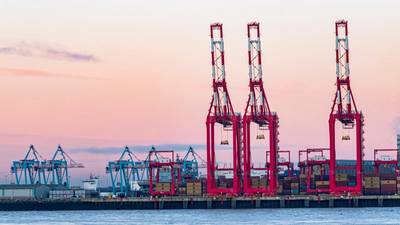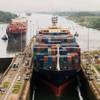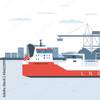UK Freeports Risk Harboring International Crime
A significant element of the U.K. government’s levelling up plan to create thousands of jobs, regenerate more deprived areas and attract overseas investors is the introduction of freeports. These special low-tax trading zones allow all kinds of businesses to trade.
Under the U.K. model, freeports can encompass two different kinds of sites. On customs sites, authorized businesses will be able to import certain goods with simplified customs documentation and without paying tariffs. Domestic goods can also be held in a customs site and used in any manufacturing process. And on tax sites, authorized businesses will benefit from reduced stamp duty, lower business rates and lower national insurance contributions for new employees.
A number have already been approved at strategic transport hubs across the U.K. These include Solent, Plymouth and South Devon, Liverpool City and Freeport East at the Port of Felixstowe and Harwich International.
On a practical level, a freeport consists of designated buildings and zones within the larger perimeter of an existing port or on a newly developed site. They are designed as a tool for boosting business and the local economy. However, as my research shows, in the absence of usual customs checks, they may also harbor international crime.
Why the U.K. is encouraging freeports
The government claims that freeports will boost international trade, innovation and economic growth in areas which need it most. It intends to encourage foreign and local investment by streamlining business processes and lowering tax. According to its latest estimates, the Solent Freeport, for example, is set to provide £1.35 billion in private sector investment alone.
The government also intends to loosen planning reforms for freeports in order to boost construction and infrastructure projects, thereby sustaining high-skilled jobs and growth in the longer term. It says those local council areas neighboring freeports will be able to keep all the money they make from the business rates to stimulate further growth in the local community.
Many international freeports do point to such economic benefits. The Jebel Ali freeport in the United Arab Emirates employs over 135,000 people and generates the equivalent of £81 billion in wealth. Geneva’s freeport in Switzerland, meanwhile, helped its local economy withstand the impact of 2008’s global financial crisis and contributes some £8.8 million to the surrounding area every year.
Some observers have likened the British model to “Singapore-on-Thames”. They see this freeport plan as a bid to emulate the economic success Singapore has known since independence in 1965 – success helped largely by international trade links, liberal tax and free trade policies.
The challenges that freeports bring
Research shows that high-tech freeports, such as Dubai Internet City, enable faster economic growth in developing areas. Those with strong marketing plans, like Geneva freeport, succeed better in competitive markets. To be truly successful, the U.K. freeports will similarly need to invest in tech and marketing, factors which have not been fully addressed so far in the government’s plans.
Without proper technical and logistics infrastructure in place to support wider growth, studies suggest that the U.K.’s freeports will probably displace jobs – and therefore economic growth – from nearby communities. Firms outside the designated freeport zone might struggle to remain competitive. Support for local businesses, too, has not been adequately outlined.
British economists Leonard Alan Winters and Peter Holmes have warned that freeports may offer little benefit when the U.K.’s trade tariffs are already low because they do not allow suppliers access to final (end of line) markets without having to pay tax. Further, due to the rules on import duties currently implemented within the U.K., these new freeports may not actually result in goods being entirely free from tariffs. Instead that taxation may simply be delayed until the goods arrive at their destination.
Crucially, as a briefing paper from the Royal United Services Institute think tank warns, freeports might facilitate the illegal import of drugs, wildlife and counterfeit or stolen goods. The report points out that the European Parliament has called for the abolition of freeports across the EU. And it highlights the link between freeport trading and a near 6% increase in the value of counterfeit goods being shipped into a country.
Such illegal import activities often involve tax evasion and what global watchdog Financial Action Task Force terms “trade-based money laundering”. This risk of criminals taking advantage of the relaxed regulation in freeports has been highlighted by several studies.
Customs provide crucial scrutiny of goods, processes and documentation. Without similarly robust measures in place, another aspect which has not been fully addressed in the government’s plans, freeports risk harboring criminal activity and helping criminals evade authorities.
The author
Paul Michael Gilmour, Lecturer in Criminal Justice and Policing, University of Portsmouth
(Source: The Conversation)













